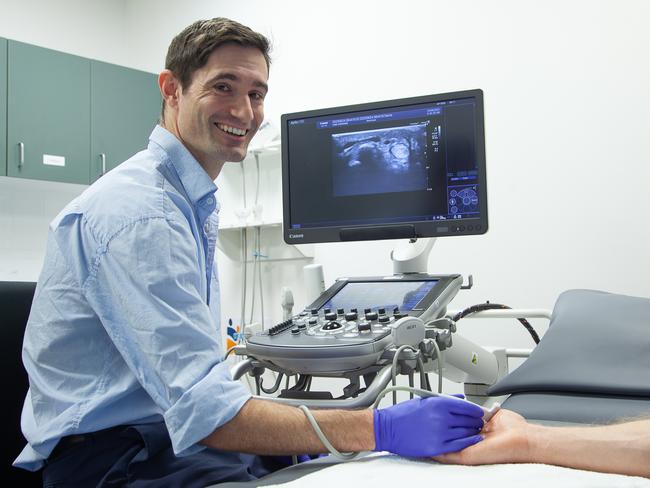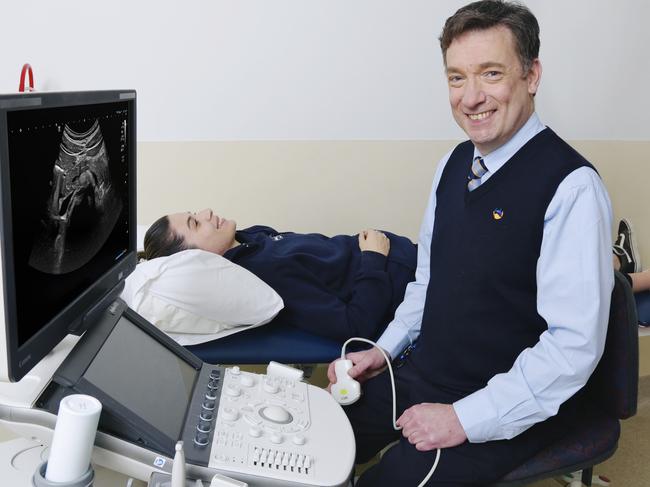Niche careers experiencing extreme worker shortages
Several careers that may not be on jobseekers’ radars are experiencing extreme worker shortages in Australia – and offering lucrative salaries.
Careers
Don't miss out on the headlines from Careers. Followed categories will be added to My News.
Australians are being urged to consider a range of niche job opportunities that are experiencing extreme worker shortages.
Charity work, sonography, strata management, photography and academia are unlikely to be on the radar of most jobseekers, but career experts say more people are desperately needed to fill these roles.
The jobs often come with numerous benefits, including lucrative salaries, and should be considered by new workers and career changers who possess transferable skills, says Aimee Hutton, head of customer insights at recruiter SEEK.
“Thinking outside the box about your career can help uncover a range of opportunities you might not have considered, or knew existed, otherwise,” Hutton says.
“These opportunities can open doors to jobs that better suit your goals and lifestyle, whether that means a higher salary, a shorter commute or access to hybrid, remote and flexible arrangements.”
Changes in the job market mean future prospects also look exciting in a number of sectors, says Hutton, who encourages Australians to keep an open mind.
“It’s worth remembering that the jobs market is constantly evolving, which presents an exciting opportunity to consider unique jobs that may be in high demand,” she says.
“By thinking big and looking for ways to follow your passions, you’ll open yourself up to the potential for a greater sense of fulfilment and job satisfaction.”

CHARITY WORKERS
As costs of living drive more people to seek help from charities, and more funding is needed for measures to improve health and wellbeing and protect the environment, professional fundraisers are increasingly in demand.
Fundraising Institute of Australia chief executive officer Katherine Raskob says those with HR skills are particularly needed, as well as people with the ability to build relationships with donors via digital media. This is increasingly important as charities moved away from face-to-face fundraising efforts during the pandemic.
The charity sector wants to double its annual charitable giving amounts to $30bn by 2030, but will be held back unless more people see fundraising as a legitimate career choice.
“I don’t think people wake up and say, ‘I think I’m going to be a fundraiser’. You don’t go to university to be a fundraiser,” Raskob says.
“There’s a perception that … I’m going to be paid less or I’m going to get off the corporate career ladder and not be able to get back on (if I take on a role with a charity).
“But salaries are more competitive than they have ever been. And you can help find a cure for HIV, or rehabilitate koalas, or save one child from getting cancer.
“These are all really important causes and, increasingly, Australians want to be … totally passionate about the cause they’re working for and they are intent on being change makers.”

SONOGRAPHERS
An increasing demand for ultrasounds has created a critical shortage of sonographers, not just in Australia but also New Zealand, the United Kingdom and Canada.
I-MED Network Radiology sonographer Andrew Grant says there is a national shortfall of at least 3000 sonographers that, if not addressed, will continue to affect patient health outcomes.
“The number of new sonographers coming into the workforce has not kept up with demand,” Grant says.
“In recent years, the sonographer workforce grew by just over two per cent. However, Medicare-funded ultrasound services grew by about seven per cent.”
Michael Foster-Greenwood says sonography is a profession that brings immense fulfilment.
Foster-Green is researching ways to identify possible strangulation through imaging a small bone in the neck, as well as nearby blood vessels, which may be used in court to prove domestic violence.
He was recently named the Australasian Sonographers Association’s Queensland Sonographer of the Year.
“The most rewarding thing about being a sonographer are the moments where you solve someone’s clinical problem that they may have been dealing with for years,” he says.
“Or moments where you find a 2mm cancer very early and you know with absolute certainty you have helped save that person’s life and significantly improved their treatment outcomes – that’s what keeps me coming back to work.”

STRATA MANAGERS
One in six Australians live in strata-titled properties and, with the number set to grow, Strata Community Association NSW president Stephen Brell is encouraging professionals to consider switching to the sector.
He says skills from a wide range of industries can easily transfer to strata management and a certificate of registration takes just three days to complete.
He says strata management offers great remuneration and the sector shows no signs of slowing, having already survived recessions, the global financial crisis, the pandemic and the tech bubble.
“Strata management is such a great career and those with transferable skills and strengths should think about making the move,” Brell says.
SEEK says photographers, university lecturers and tutors, cabinet makers, occupational therapists, midwives and metal fitters, machinists and turners are among other roles experiencing a high demand for workers.
SALARIES ON OFFER
Cabinet maker – $55,000 to $75,000
Fitter and turner – $60,000 to $80,000
Fundraising manager – $100,000 to $120,000
Lecturer – $95,000 to $115,000
Midwife – $85,000 to $105,000
Occupational therapist – $85,000 to $100,000
Photographer – $55,000 to $75,000
Sonographer – $115,000 to $135,000
Strata manager – $80,000 to $95,000
Source: SEEK




